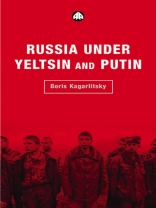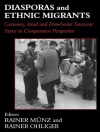Russia has undergone more seismic changes over the last 100 years than almost any other country. The 1917 Revolution, the rapid industrialisation of the 1930s, the following devastation of the Second World War, and the present return to Capitalism has seen the deep impoverishment of the entire population.
Kagarlitsky shows how to understand these changes, and how to characterise the complex process of reform, revolution and counter revolution.
Looking in detail at the nature of Russian society and politics since 1990, Kagarlitsky offers an introductory political analysis of the major political and economic developments that have taken place under President Yeltsin, and the legacy he bequeathed so unexpectedly to his successor Putin. He focuses on the role of the media in post-Soviet Russia, corporate structures and their influence on social conflict, the formation of the oligarchy and the role of the left in modern Russia.
Tabella dei contenuti
Foreword – Introduction
1. The Inevitable Reaction
2. The Russian Intelligentsia between ‘Westernism’ and ‘Patriotism’
3. The Rise of the Yeltsin Regime
4. Word and Deed
5. The Corporatist Model and Social Conflict
6. The Post-Soviet Left
7. The Road to Default
The Twilight of the ‘Second Republic’
8. The Drift to the Left (1998-1999)
9. The War of the Kremlin Succession
10. The Putin Regime
Conclusion – Notes – Index
Circa l’autore
Boris Kagarlitsky is a senior research fellow in the Institute for Comparative Political Studies, the Russian Academy of Sciences. He was a political prisoner under Brezhnev and latterly has been an adviser to the Chair of the Federation of Independent Trade Unions of Russia. He is the author of Russia Under Yeltsin and Putin (Pluto, 2002), The Politics of Empire (Pluto, 2004) and Empire of the Periphery (Pluto, 2007).












